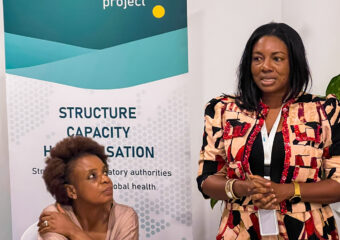Successful Workshops on One Health – Evidence Synthesis in Croatia, Ghana and Nigeria
Project countries of OH-EVI achieved a significant milestone in the development of evidence-based policymaking in One Health early this year.
The country teams from the three project countries of the OH-EVI (Evidence-Informed Policy Approaches for One Health) project successfully held face-to-face workshops in Ghana, Croatia and Nigeria in January and February 2025. The workshops served two main purposes: validating each country’s One Health situation analysis and priority-setting, and providing hands-on training in evidence synthesis and communication. By doing so, an important milestone in advancing evidence-informed policymaking for One Health was achieved. During the workshops, the teams received training in formulating problem statements, conducting systematic literature searches, synthesising evidence and drafting their final ‘Evidence Briefs for Policy’ (EBPs).
The teams from all three project countries completed the workshop with great commitment and dedication. They built on significant preparatory work already undertaken by the teams. This included developing detailed country profiles and selecting priority policy topics.
Over three intensive workshop days, the teams refined their national One Health profiles, deepened their understanding of priority issues and outlined the specific topics for their upcoming EBPs. The workshops also offered practical insights into best practices for evidence gathering and synthesis. Moving forward, the teams will spend the remainder of 2025 conducting evidence syntheses, developing their EBPs and engaging stakeholders through structured policy dialogues.
Prof Jesse Uneke, Vice Chancellor of the David Umahi Federal University of Health Sciences (DUFUHS) in Nigeria, highlighted the transformative potential of the approach:
‘Evidence-informed approaches can drive policy reforms across all sectors, which are essential for realising the dividends of the One Health approach.’
Prof Fadi El-Jardali, Director of the Knowledge to Policy (K2P) Center at the American University of Beirut and lead facilitator of the workshops, emphasised the broader value of this process. He further highlighted how evidence-informed policymaking not only leads to more effective decisions but also enhances accountability, transparency and advocacy. It empowers citizens to participate in decisions affecting their health and builds public trust in health systems, so El-Jardali.
A participant from the National Assembly added:
‘I must say that this workshop has truly empowered us at the National Assembly. You cannot talk about policymaking without supporting it with evidence. We’ve learned how to harness evidence to back policies for effective implementation. I believe the benefits of One Health for the population are achievable through this approach.’
Background of the project
The OH-EVI project is a collaboration between the Institute of International Animal Health/One Health (IITG) at the Friedrich-Loeffler-Institut (FLI) and the WHO Evidence-Informed Policy Network (EVIPNet), hosted by the Evidence to Policy and Impact Unit at the World Health Organization (WHO). The project aligns with the Global One Health Joint Plan of Action. It supports the development of national implementation plans that promote the systematic and transparent use of evidence in One Health decision-making. The best available evidence on One Health topics, prioritised by the project countries, should be compiled and stakeholder dialogues initiated. Following such procedures will advance the respective national One Health agenda. National teams and steering committees in Croatia, Ghana, and Nigeria have been established to implement the project, with institutional support from:

- Croatian Institute of Public Health (CIPH) in Croatia
- Kumasi Centre for Collaborative Research (KCCR) in Ghana
- African Institute for Health Policy and Health Systems (AIHPS) in Nigeria
Each country has selected a priority topic for its EBP:
- Croatia: One Health, One Warning System – A Call to Strengthen Zoonotic Surveillance
- Ghana: Bridging the Sectoral Siloed Approach to One Health Implementation
- Nigeria: Policy for Addressing Antimicrobial Resistance Using a One Health Approach
By equipping country teams with the tools and knowledge for evidence-informed policymaking, the OH-EVI project aims to foster more effective, coordinated and sustainable health policies. This will be achieved within the One Health framework.



